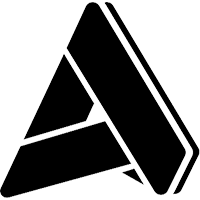5 Wholesale Distribution Trends to Watch in 2021
5 Wholesale Distribution Trends to Watch in 2021
5 Wholesale Distribution Trends to Watch in 2021
Jul 6, 2021
 Aptean Staff Writer
Aptean Staff Writer 
2020 was all about the ecommerce revolution. The pandemic encouraged—and (with stay-at-home orders and safety restrictions) occasionally forced—people to abandon brick and mortar stores for easier, safer online alternatives. This shift contributed to the need for more direct-to-consumer drop shipping than ever before.
And the consequences varied incredibly by product; toilet paper, masks and hand sanitizer (among many other items) smashed wholesaler predictions, while other retail items like suitcases and apparel sales plummeted.
Now that parts of the world are open once again, we've adjusted to a new kind of normal when it comes to consumer goods distribution.
Now, about halfway through 2021, we've noticed a few things as a result of the tumultuous time we had last year. And they may well change the distribution game as we know it. Are you ready to rise to the challenge?
1. Sustainable Operations and Green Logistics
No matter where you live or the industry you work in, few things are trendier now than going green. Why? Well, a few reasons. First, if you're operating with sustainability at the forefront of your best practices, you're going to be more efficient. It's inevitable. You're eliminating waste; streamlining outdated, clunky processes; and driving innovation within your business. Which inevitably means more money back in your pocket. Not to mention, you're doing good work for the sake of the planet. Second, your customers care. They care if your operations are sustainable, if your logistics are green. 92% of customers are more likely to trust a company that supports social or environmental issues, and 87% of customers have a more positive image of a company that supports social or environmental causes. And third: do you want to attract the next wave of talent? Invest in sustainability. By 2025, 75% of the workforce will be made up of millennials. And a Cone Communications study revealed the following:
27% of millennials would take a pay cut to work for a socially responsible company.
76% of millennials consider a company's social and environmental commitments before deciding where to work.
64% of millennials won't take a job if an employer doesn't have strong corporate responsibility practices.
Go green. It's smart business. It's good practice. And everyone wins.
2. Supply Chain Automation
Efficiency is a must these days. And the wholesale distribution industry is no exception. Leaders within the industry tend to be hyper-focused on increasing levels of efficiency and automation within their supply chain. It's how you prevent waste—waste of resources, time, and most importantly, money. To automate your supply chain, a few things need to happen. You need the right software to support connectivity between all departments, warehouses and teams. Your data needs to be shared quickly and updated in real time. That's how you know what inventory you have, where it is, where it's going, how much it costs you, what orders have been processed, what a customer's purchase history is. The list is nearly endless. And that's only in terms of what's inside your warehouse. The right technology also enables you to follow your product once it leaves your distribution center. You can track where it is from the supplier before it arrives to you, and then once it leaves your distribution center, you can follow when it's delivered to your customer. For true automation, you need complete visibility into your entire business. It's the only way you can accurately answer all those questions we just asked. That's just what robust industry-specific enterprise software will get you.
3. Omnichannel Distribution
The customer is always right. And in 2021, the customer expects an easy, convenient and enjoyable shopping experience. Enter omnichannel distribution. This is basically where you give your customers the ability to engage with, purchase and receive orders directly from you via any channel they choose. Not only does this make purchasing more manageable for the customer, but it also strengthens brand loyalty. If you make the purchasing process easy, customers are more likely to come back for another purchase.
So the whole point of implementing an omnichannel fulfillment strategy is to improve customer satisfaction while also increasing distribution efficiency and reducing costs. To achieve this, you must connect all aspects of your distribution operation with a single enterprise solution—giving you a single view of all inventory, transit options, orders, customer interactions and deliveries.
When all of your internal processes and data repositories are not connected, you lose vital information and cannot hope to efficiently fulfill customer orders regardless of channel. Which, in the end, frustrates your customers and costing you time and money. That's what intelligent omnichannel distribution logistics prevents.
4. Digital Transformation
This has been trending for a while. It's been on the back burner, simmering while your business may be attending to other, more pressing things. But let us be the first to tell you that there's absolutely, unequivocally no better time for digital transformation.
Because, really, when you remove all the bells and whistles, digital transformation means one thing: agility. Which is necessary if you plan to succeed in the wholesale distribution industry today. While preparedness for today's challenges and tasks is good, having that same sense of awareness and preparation for the unknowns of tomorrow is even better. Digital transformation is the motor behind long-term success. And it means harnessing the power of robust technology to improve the efficiency of your entire operation. It makes you agile, adaptable and effective. It keeps you ahead of the competition.
5. Electric Vehicles
For distribution businesses with fleets, we've seen a lot about making the transition to electric vehicles. This will be trendy for the next few years. It won't happen overnight—the industry is still emerging and slightly underdeveloped, but switching to electric-vehicle fleets present a huge business opportunity. And in the long run, it could save you a ton of money. But, since it is still emerging, many distribution companies are hesitant until more charging stations are readily available. In the United States, the market for fleet-charging services could amount to $15 billion per year by 2030. And as the industry grows and develops, soon there will be an opportunity to buy more efficient and more cost-efficient electrical vehicles. And this is just one more opportunity to show the world that you're committed to running a sustainable, 'green' organization. We think you'll soon see more and more headlines about electric fleets.
Last year was a tough one. And it was entirely unpredictable. Now, it's time to look ahead, to do our best to move forward.
This year, we see a bit more consistency. And we see growth based on the hard-earned lessons we learned last year.
No matter the trend or the year, one thing will always remain true: robust technology can help you run your business efficiently, profitably and into the future.
Distribution software solutions are made to accommodate the wholesale distribution trends and challenges of today and tomorrow. It's built to grow and change as you do—or as trends do, or as customer demand does. Its functionality is that fluid, capabilities that robust.
Are you ready to tackle the trends of today and tomorrow? Reach out, now.
Ready to Start Transforming Your Business?
We’ve got the specialized ERP solutions you need to conquer your industry challenges.



